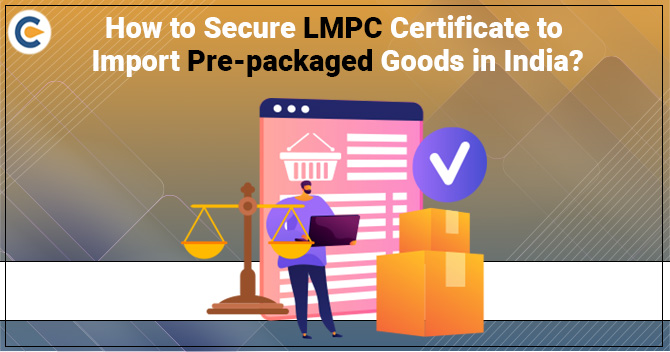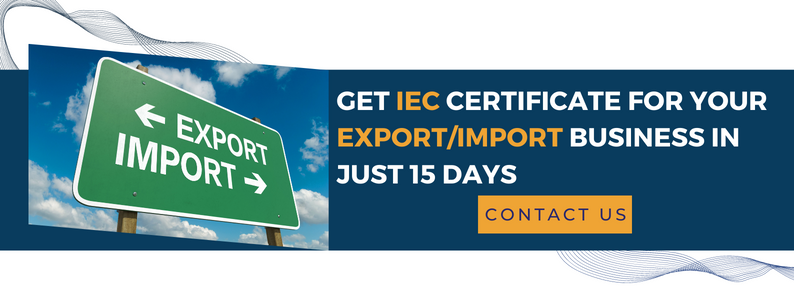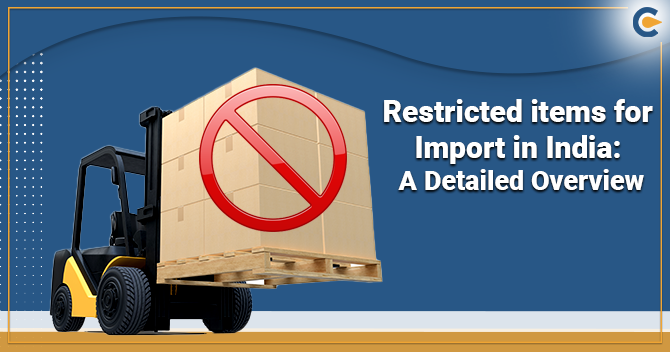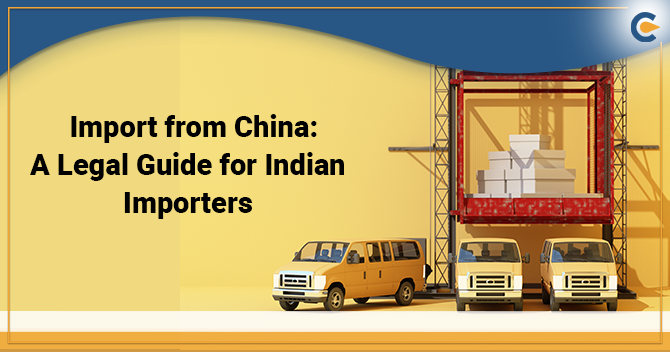Are you planning to import pre-packaged commodities for distribution and sale in India? If so, then you must secure a Legal Metrology Registration Certificate (LMPC) in the first place. An LMPC certificate refers to an import consent falling under Legal Metrology Act, 2009, and Legal Metrology (Packaged Commodity) Rules, 2011. The Act regulates trade in goods sold or distributed by measure, weight, or number. The Act seeks to advocate transparent trade practices and safeguard consumer rights by underpinning norms and regulations.
This write-up seeks to answer all the queries regarding the LMPC certificate in detail, including the following;
- What do you mean by pre-packaged commodity? What is the role of the LMPC certificate for importers?
- Why are importers mandated to secure an LMPC certificate?
- How can importers apply for the same?
- What are the underlying penal provisions for contravening the conditions of the LMPC certificate?
What is the legal definition of pre-packaged goods?
In legal parlance, the term pre-packaged goods refer to a commodity, which without the buyer being present, is wrapped in a package (regardless of type), whether sealed or unsealed, so that the commodity present therein has a pre-determined quantity”.
Some common examples of such goods include baby food articles, food articles, fuel, cement in bags, fuel, wires, wool, chemicals, etc.
Underlining the significance of legal metrology
Metrology is a field that deals with the study of measurements. It basically deals with units and methods relating to weight & measurement concerning mandatory legal and technical requisites.
Let’s understand its real-world applicability when it comes to pre-packaged goods.
When we go to the marketplace, we purchase goods that are either sold unsealed or pre-packed. The loose goods such as fruits and vegetables are weighed in our presence. We can personally check their quality. We are also aware of the seller’s identity. But when it comes to the pre-packaged goods, we cannot be sure of such parameters. This is where Legal Metrology Act comes into the picture as it guides us with the information required (quantity, weight, price, date of expiry etc.) to make an informed purchase.
What is the role of the LMPC certificate for importers?
Trades engaged with the importation of the pre-packaged goods for sale or distribution are mandated to file an application for the same with the Controller of Legal Metrology in the State.If the application receives the authority’s approval, the LMPC certificate shall be granted to the concerned applicant.
An LMPC registration remains valid for one year and a maximum of 5 years. If you wish to sell said goods in an individual state, you must seek for this license by applying to the respective State’s controller. Likewise, if you intend to make sales in multiple states, you must register with the director at the Centre through your local controller.
Where to apply for LMPC certificate
Some states provide ease of online filing when it comes to LMPC registration. In a state like Andhra Pradesh, you are allowed to file an application along with necessary documents on the State’s official portal. On the other hand, an applicant from State can proceed the same way.
In the absence of the online portal, you can head over to the local Legal Metrology Department and file the prescribed application in person. Alternatively, you can get in touch with a consultant like Corpbiz or a lawyer to address the legalities.
How to apply for LMPC registration, and how much it cost?
When filing the application, you will need to enclose the given particulars:
- Applicant name
- Address of the workplace for importing the goods
- Common or generic name of the commodity
Common documentation for applying LMPC certificate
- Importer Exporter Code (IEC) granted by DGFT.
- GST registration certificate
- Applicant’s digital photographs
- Address and identification proof
- Sample of the label to be affixed on the commodity
- Aadhaar of the applicant
- Business registration (based on the type of business structure)
- Copy of MoA and AoA ( in case of the company falling under the Companies Act, 2013[1])
Depending on the State where the certificate is sought, the following additional documents may be required.
- DOB of applicant
- Tenancy proof of the premises
- Location map of the premises
- NOC from the State pollution control board or any such competent authority
The rules provide that the application should be filed within 90 days of the commencement date of import.
Upon receiving the said application, the concerned authority shall conduct the on-site inspection of the importer’s premises. After satisfactory verification, the authority shall register the applicant and accord the LMPC registration.
In case of incomplete information or error, the application will be reverted to the applicant within seven days of its receipt.
Importer’s responsibilities under Legal Metrology Act
To secure the LMPC certificate, the applicant should ensure their pre-packaged goods are affixed with a declaration reflecting the given information:
- Importer’s name and address
- Manufacturer’s name and address
- The generic or common name of good contained in the package
- Country of origin (COO) of the commodity
- Overall quantity in terms of a standardized unit of weight, number, or measurement
- Month as well as the year of import
- Month as well as the year of manufacture
- Maximum retail price (MRP)
- Commodity’s dimension, if relevant
- Name and contact detail of person accountable for handling customer complaints.
The declaration or labeling varies product-wise. It must be printed in English or Hindi & there are norms defining how the declaration must be highlighted on the packaging or affixed to it, and detailed instruction relating to each information point.
Customs authorities have the right to detain the imported goods in the absence of a valid LMPC certificate. Therefore, the importer needs to have such a license and comply with the declaration rules before the arrival of the shipment in India.
Rules pertaining to a contravention of rules and penalties
- Any contravention of the Legal Metrology (Packaged Commodities) Rules shall attract a monetary fine:
- Rs 4000, in case of a breach of provisions cited under rules 27 to 31
- Rs 2000, in case of a breach of other provisions cited under rules 27 to 31 for which no punishment has been provided
- Rs 5000 in case the applicant seeks an LMPC certificate post 90 days of the import’s commencement.
- The defaulters need to address some form of action alongside a fine in case of a subsequent offense.
- The manufacturer shall be penalized accordingly if the label on the imported items fails to reflect qualifying words such as ‘manufactured by’ or ‘packed by.’
Exemptions
An LMPC certificate is not a legal compulsion for the followings;
- Commodities having a net weight of 10 gms or 10 ml or less
- Packed Agricultural produce of more than 50 kg
- Packages having fast food articles packed by a restaurant or hotel
- Packages having formulations falling under the Drugs (Price Control) Order, 1995
Moreover, Chapter 2 of the Legal Metrology Act, enclosing norms for packages proposed for retail sale, will not apply to:
Packages with commodities weighing above 25 kg or 25 l, excluding fertilizers & cement, sold in bags of up to 50 kg
Packaged items primarily for industrial consumers (those who procure goods directly from the manufacturer for utilization in that industry) or institutional consumers (service institutions such as railways, airways, hotels, and hospitals).
Conclusion
It is evident from the above that securing an LMPC certificate is a mandatory requirement for the importer of pre-packaged commodities. Any ignorance to complying with such a condition could incur penalties for the defaulters. Moreover, it is advisable to stay in line with the Legal Metrology Act, 2009, be it a matter of complying with labeling norms or providing necessary disclosure to the concerned authority.
Read our Article:Process to Set up Export and Import Business in India













